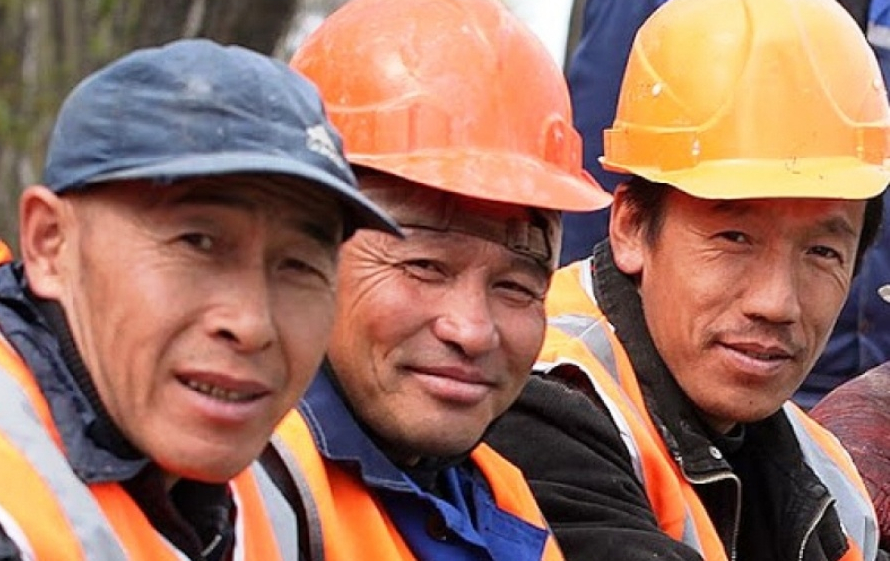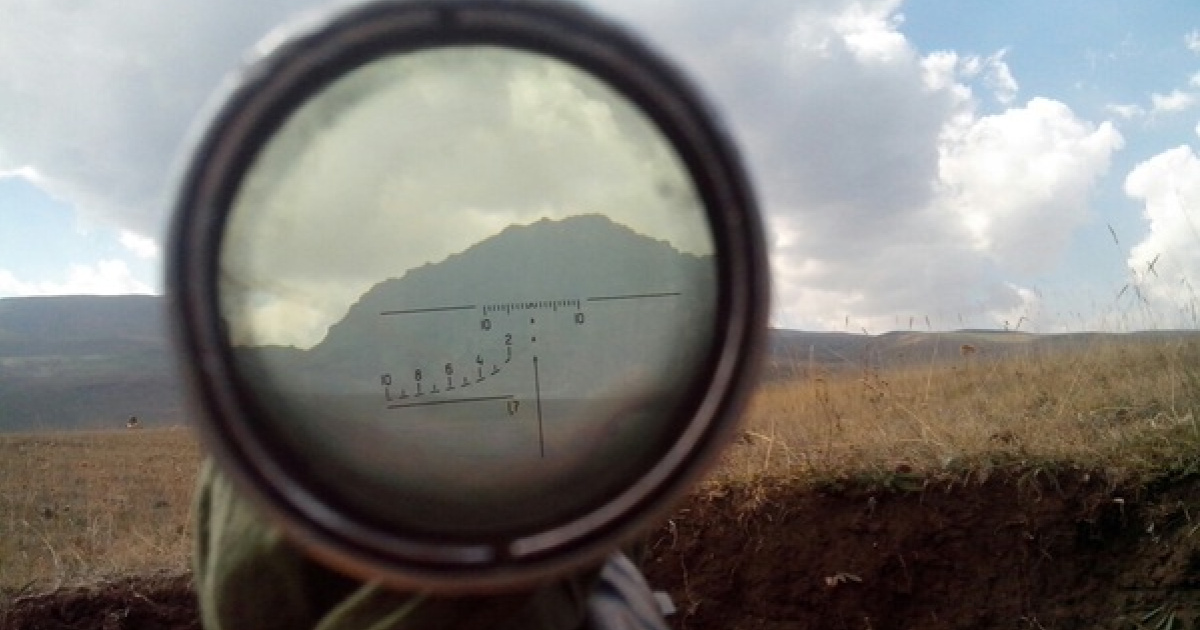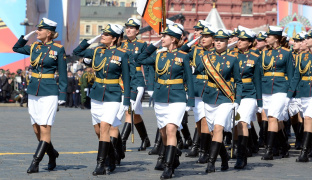
Another batch of "fraternal" aid arrived in Donetsk from russia, this time in the form of large-capacity buses for up to 114 people. The locals learned this information from local news.
The "republic" had previously received a similar gift in April. At that time, reports stated that five low-floor large-capacity buses of russian production, which had been in use in moscow for several years, were delivered to the "capital of the republic". However, the residents of the "DNR" are used to receiving all kinds of garbage from the master's hand, without raising questions: "Why would the deserted Donetsk need buses designed for large cities with intense passenger flow?"
The news reports showed residents how the buses had the logo of "DonElectroAutoTrans" and the flag of the "DNR" painted on them. Apparently, these buses never left the territory of the motor pool. At least, they were only seen on the Donetsk roads through the television broadcasts.
However, it is not customary to talk about problems in the "DNR". Here, they prefer to talk about bright prospects and build illusory plans. In this case, the First Deputy Chairman of the "DNR" government, Andrey Chertkov, did not explain to the public why the buses brought from russia were not put into service. Instead, he enthusiastically reported that the "republic" has a program in according to which by 2025, the "republican" bus fleet will be replenished by 451 buses. "From 2023 to 2025, we are getting 451 units of transport. These are buses of various capacities—large, medium, and small buses. By February 2024, we will receive 161 buses; through the Ministry of Transport of the Russian Federation, we will receive 20 buses, and under the program of the Ministry of Industry and Trade of the Russian Federation, we will receive about 60 buses", - Chertkov stated.
He also added that there is an issue of acquiring trams because this type of transport is expensive. However, the authorities of the "republic" will negotiate with the heads of regions and departments in russia to solve this problem as well.
The issue with city communal transport in the "DNR" began in 2014 and worsened significantly since February 2022. It's not just the dismal state of the public transport fleet. The main reason is that there is no one to work, neither on the old vehicles nor on the new ones. Drivers who managed to avoid conscription are resigning due to extremely low wages. As of today, the employment center has 124 vacancies for trolleybus drivers and 90 open spots for tram drivers. As for bus drivers, the staff at the transport enterprise is only filled to 30%.
But in the "republic", they know how to solve problems, using the same methods that were tested in the Soviet era - lies and provocation. Specifically, they launched a rumor that the salaries of public transport drivers are being increased to 200,000 rubles a month. Allegedly, they found funding to enhance the prestige of the profession. However, after nine years of occupation, the people of Donetsk have learned to filter what they hear.
The first reaction to the news came from public transport drivers in Rostov. It's not hard to guess why. It so happened that the residents of the "DNR" often travel to Rostov for various reasons. Some go to buy household appliances, some to get new winter boots. This is because absurd prices for goods prevail in Donetsk. And the quality of products is also a problem; stores stock complete junk. So, it turns out to be cheaper to go to russia to shop rather than buy anything in a nearby store.
Of course, the people of Donetsk are sociable. They happily tell Rostov locals all the news, and even things they aren’t asked about. It seems they also let slip about the unusually high salaries for drivers. However comical it might seem, the drivers in Rostov believed in the tale and, lured by the tempting salary, were ready to pack their bags to go and provide "fraternal assistance". Those poor things found out the truth due to the almighty internet. Residents of the very "republic" where naive russians planned to go to earn big money wrote the truth there.
The Rostov residents hesitated and decided to delay their move to the occupied territory. Although, if some russian media outlets are to be believed, some drivers from Rostov did, in fact, come to Donetsk and began to work there. "In Donbas, they are paid from 200,000 rubles a month, and the main requirement is simply to transport people somewhat on schedule", - reports "Donnews.ru," citing sources in Rostov's transport companies.
The drain of personnel to the "special military operation areas" was acknowledged by the Rostov Region Ministry of Transport. "There has been an increased demand for drivers from enterprises located in the newly added territories. As a result, there is an outflow of driver personnel", - the department's statement said. The high salaries for drivers in the "new regions" are explained by increased risk and substantial state investments in the reconstruction of the "liberated" territories.
As it happened, I've grown accustomed to fact-checking information. In conversation with some bus drivers, I found out that, in reality, no one among the locals here is earning big money. For instance, with a schedule of 5/2, the salary amounts to 7,500 rubles a week. It's not difficult to calculate that it amounts to 30,000 in a month. Some work without days off to earn more. They've heard about drivers from Rostov, but they don’t drive the smaller-capacity buses. Most likely, as locals presume, they work on the First Line route. It's a route from the railway station to the Donetsk Metallurgical Plant, passing through Artem Street. Apparently, they will place the "new" buses that were retired in moscow because nearly all the trolleybuses have exhausted their service life, and there's a need to replace them.
Even considering all this, the puzzle regarding the drivers arriving from Rostov does not add up. Here's why—buses are still insufficient on all routes, and people are forced to wait for them for hours.
To add to this, local media outlets presented another piece of news: buses were delivered to the "republican" training center, where drivers will undergo driving practice. What does this mean? Are there still not enough drivers? Where is the supposed influx of drivers from Rostov? The report from the regional "Ministry of Transport" dispels any doubts about "solving the problem". According to the press service, transport companies regularly request additional bus drivers. The largest number of applications comes from bus transport enterprises in Donetsk, Makiivka, Mariupol, Yenakiyeve, Shakhtarsk, Snizhne, Torez, and Novoazovsk.
In an interview with local media, the first deputy chairman of the "DNR government", Andrey Chertkov, stated, "We will be increasing the salaries of drivers in municipal enterprises. If someone wants to work as a driver, we're ready to train them and provide a decent salary". However, the "official" did not specify what he considers a "decent salary". If it were 200,000 rubles, I believe he wouldn't have missed highlighting that. All he mentioned was that at the moment, 75 drivers are being trained, and the second stage of training is currently underway.
Apparently, the authorities have decided to rectify the staffing shortage observed in all spheres by leveraging the younger generation. Starting this academic year, career guidance returns to schools in the form of the "Ticket to the Future" project. This was reported by the "Ministry of Education and Science" of the "DNR". It is actually a direct borrowing from the russian project with a similar name. However, the project launched in russia in 2018 includes senior high school students taking career guidance tests on a digital platform and participating in various offline events.
In the "DNR", they will introduce students to various trades starting from the 6th grade. I believe that the law simplifying the employment procedure for children aged 14, which was adopted by the State Duma of the russian federation on June 13 of this year, will significantly aid the "young republic" in resolving the staffing issue. According to the law, consent from one of the parents or guardians will be sufficient for a child's employment. Deputies of the aggressor country claim that children are eager to work at 14 to gain initial work experience and help out their families who are in financial need.
"Under the conditions of economic sanctions from unfriendly states to russia, work, and thus the teenager's income, is not only a form of financial support for the family but also nurtures a sense of responsibility in them", - stated State Duma deputy Artem Metelev.
The conditions for employing children have been simplified to the extent that the employer is not required to demand medical evaluations regarding their health. A relatively recent medical examination will be adequate.
By and large, there is nothing inherently alarming in simplifying the employment process for teenagers. Indeed, many students desire to earn their own pocket money and willingly work during vacations in various enterprises that allow child labor. However, there is a concern that some unpleasant "surprise" might be in store for Donetsk's teenagers. Unfortunately, we no longer expect anything positive from russia.
Liusia Molchanova, Donetsk, for OstroV




